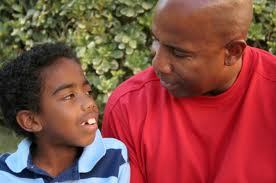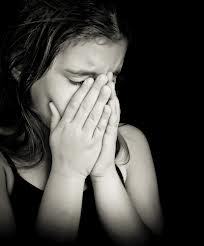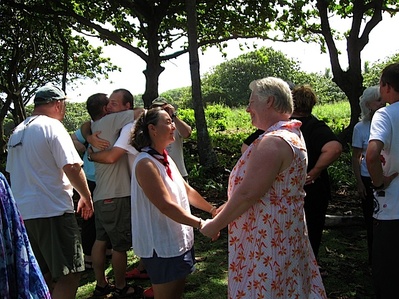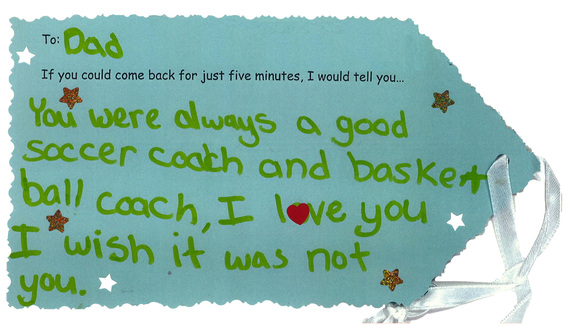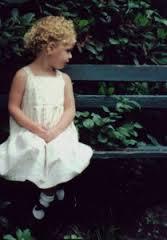Last week brought the sad news that Robin Williams, one of the worlds' beloved lights in comedy and acting, committed suicide. The causes pointed to severe depression and challenges with sobriety from substance abuse. When this information reached my 13-year-old daughter, we talked about it briefly. As the details emerged regarding the methods Robin Williams took to end his life, I knew more questions would be asked. Death is a mystery to children and adults alike. Suicide is sudden and dramatic, and it's important to acknowledge that what leads to someone taking this action is a progressive depressive mental state.
Death, dying, and grieving brings up fear and anxiety for many children and adults. Sometimes adults aren't sure how to talk about death, or, in this case, suicide with their children and the children in their lives. Children are very much in the now; they're not holding onto preconceived notions, so, they are more prone to ask very poignant questions.
Here are 12 steps to take to talk with your children about suicide:
1. Allow them to lead. Don't presume that you know what they're feeling. You may check in with them and ask if there's anything they're wanting to talk about. If they haven't asked, they may not have heard. You may decide how and when to share the news with them if you're concerned that they might hear it out of context from a friend or stranger.
2. How old is your child? The younger the child, the more abstract a concept death is. For younger children, too many details are overwhelming. It's important to know your child and to know where they are developmentally and emotionally. You don't want to "give them a suitcase that is too heavy to carry," emotionally. The older your child, the more scary and confusing news like this can be.
3. Connection between you and your child is the true goal of the parenting. It's important to let your children know that you are a safe, comforting space for them to share all their feelings with -- the bright and shiny and the dark and murky -- without judgment or impatience.
4. Don't tell them how they should or shouldn't feel and don't impose your beliefs about death and eternal life on them. They live with you so they know what you believe. It cuts off connection with you when you do this, especially when they enter the tween and teen years.
5. When they ask questions, just answer their questions. Just the facts is a good rule of thumb. Again, how old are they? How do they handle loss and sad feelings? Do they ruminate over things or let them go? What I've told my daughter since she was a little girl when things happened to people in the world, is that the person or people who harmed themselves and/or others are very separate from love in their hearts; that they are hurting and that hurt people sometimes hurt other people or themselves to remove the pain they are feeling.
6. Do your best to keep the news OFF. The tendency of the media can be to sensationalize events so the news is on a continual loop replaying images and commentary throughout the day. This can affect people of all ages on a subconscious level.
7. Support yourself as you have feelings and reactions to the issue at hand. Children learn from watching us express and process our feelings and emotions. When they see you having your feelings without self-blame, shame and make wrong, they feel safe to have them, too. If you are struggling with depression or substance abuse, or have been impacted by a family member's depression, substance abuse or recovery from it, seek help.
8. Notice if you're feeling shame because someone in your family committed suicide, or, if you've ever been so low that you thought that of suicide yourself. Shame is a debilitating, self-annihilating, low-hanging cloud that robs you of the self-love to fall and pick yourself up. Shame is the lie that tells you that you're a mistake, rather than you've made a mistake. Seek support to release your shame so that you are free emotionally and so that you don't unconsciously pass it on to your children.
9. When someone famous dies, there's a low level grief that pervades the air. It can bring up personal losses. Talk about grief and mourning with your children when the time feels right. If need be, let them talk to someone professionally. Our society, traditionally, doesn't address grief and mourning and there can be shame if someone seems to be mourning, "too long." Three of our daughter's grandparents died within six months of each other in 2007/2008 and our daughter experienced a lot of loss and grief. It took her a couple of years to fully move through her sadness about the death of her grandparents. Even today there are things that bring up sadness at their not being present for her.
10. Practice self-care and self-appreciation. Honor your feelings. Hug your children and loved ones. Let them know that you love and appreciate them, just as they are, not for anything they do, but just for being.
11. Some children express a connection to angels and other unseen beings. Invite them to talk with their angels and unseen friends, if it brings them comfort. Allow them to find their way with their feelings as long as it doesn't hurt themselves or another person.
12. Read or create a book with your younger child that describes the feelings he/she is having. It doesn't have to have a happy ending. They narrate it, you write it. With your older child, invite them to journal, sing, and write about whatever they're feeling.
In Los Angeles, there is a fantastic bookstore, Children's Book World, 10580 1/2 W. Pico Blvd. Los Angeles, CA 90064 (310) 559-BOOK/2665. They have wonderful books on every subject.
When you let your children know that you are available to go through things together, they will feel calmer, self-assured and process their feelings more authentically and completely. Your being there for them is the gift that keeps on giving.
Please leave your comments and experiences.
Wendy Silvers is a mom-activist, spiritual counselor and mama on a mission. She coaches women, particularly moms, in embracing and activating their immeasurable power and value, and, helps parents stay sane in an insane world while raising confident, compassionate children.

